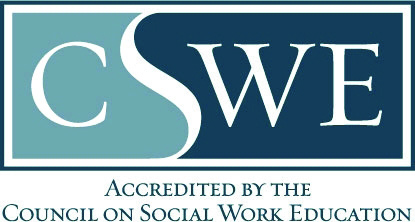What is Social Work?
It is any of various professional activities or methods concretely concerned with providing social services and especially with the investigation, treatment, and material aid of the economically, physically, mentally, or socially disadvantaged.
Green Hall
(256) 726-7340
(256) 726-7527
Students are prepared for entry-level generalist practice by using a range of methods that seek to promote human and community well-being. These methods are grounded upon biblical foundations, and include the knowledge, values, skills, cognitive and affective processes that encompass a person-in-environment perspective, an appreciation for diversity; social and economic justice for the disadvantaged, and the implementation of research and policy practice.
Department Handbooks
Department of SW Admissions Handbook- November 2017
Department of SW Field Education Manual-2017
Department of SW Professional ePortfolio Handbook – 2019
Department of SW Student Handbook-November2017
Phi Alpha – The Eta Pi Chapter Handbook 2017
Pre-Alumni Handbook 2017
Social Work Club Handbook-2017
UNICEF Handbook 2017
Field Practicum & Service Learning
The program has strict requirements for admission into the field program. The program has instituted a five-step process for admitting students into its field program. The admittance process is instituted in the course SW 350 Pre-field Orientation. This five-step process helps the program evaluate the academic and professional readiness for field practicum. The program only admits students who comply with the following five steps:
- Students applying to the field program must have successfully completed the course SW 202 Introduction to Social Work with a grade of a “C” or higher.
- Students applying to the field program must have successfully been accepted into the social work program. Students formally apply into the program during their second year in the course SW 202.
- Students applying to the field program must have successfully completed all prerequisites prior to enrolling course SW 350 Pre-field Orientation. Students need to have earned a “C” or higher in all social work courses, have minimum overall GPA of 2.0, and have completed all incomplete grades prior to enrolling in the SW 350 course.
- Students applying to the field program must successfully complete the field entrance application. This application is issued during the SW 350 Pre-field Orientation course. The application includes:
-
- A formal application that requests information on academic and professional accomplishments.
- A self-evaluation of field readiness
- A recent unofficial transcript
- An official criminal background check
- Proof of NASW membership
- Proof of NASW liability insurance
- An updated professional résumé
- Two graded papers from previous social work courses
- A Peer Reference Form
(All forms can be found on SW350 Pre-Field Orientation D2L site; Field Education application must be typed and submitted in the D2L Dropbox during the SW350 –Pre-Field Orientation course by the deadline assigned by the course instructor)
Once the field application has been completed, the student submits it to the Director of Field Education, and an appointment is made to have a formal interview. During the formal interview, the Director of Field Education reviews the field application packet with the student. After the interview, students receive a letter of acceptance into field program from the Director of Field Education.
5. The fifth step involves the student’s professional behavior. The Director of Field Education will meet with the Chair and the faculty to review and discuss the student’s professional comportment during the previous three years at Oakwood University. The program retains the right to delay or refuse entrance into the field program whenever a student has displayed behavior that is of concern to the program, the University, and the social work profession. Some of the behaviors of concern are specified in standard 3.1.8 of this document.
Students who are denied entrance into the field program will meet with the Director of Field Education to discuss the areas where they did not meet the requirements for entry into the field program. From this meeting, a plan of action will be developed to strengthen areas where the student demonstrated weaknesses. The student may be requested to:
-
- Re-apply to the field program next academic school year after working on the assigned plan of action, or
- Receive admittance to the field program based on completion of the assigned plan of action/learning contract prior to the assigned deadline. The decision to receive admittance to the program is made by the Director of Field Education and the Chair of the social work program.
- Transfer to another major. The student’s advisor will assist the student if the program chooses this option.
Field Education: Signature Pedagogy
Social work majors are required to complete internship and service learning hours essential for integrating knowledge, values and skills. In SW 202 Introduction to Social Work, students complete 15 service learning hours; in SW 350 Pre-field Orientation, students complete 50 internship hours and 15 service learning hours; and in SW 454 and SW 455 Field Instruction and Seminar I and II, students are required to complete a total of 450 internship hours (225 hours in each course) in an assigned social service agency. Transportation to internship and service learning placements is the student’s responsibility. While engaged in the senior field component, the student is limited to two 3-hour courses of additional class work (must have prior approval).
Field Education Seminar
Field Education and Seminar is a valuable component of the Social Work program and is completed concurrently for a duration of two semesters during the senior year. Upon completion of the required prerequisites, a student may apply for Field Education and Seminar, SW 454 (7 credit hours per semester). Upon successful completion of SW 454 the student may register for the course SW 455 (6 credit hours per semester). A minimum of 400 clock hours in the agency and on-campus seminar are required for successful completion of the program. The requirement of 450 clock hours does not include travel to and from the agency nor does it include lunch time. The seminar class is held once per week for ninety minutes and afford students with an opportunity to share their numerous and varied learning experiences. The seminar is also used as a forum to evaluate, discuss and interpret the students’ involvement within their field placement and further conceptualize their experiences through participation in peer learning.
A student is assigned to an agency with the expectation that he/she will remain in that setting for two consecutive semesters, (pending the successful completion of the first semester). The site may be changed, however, if extraordinary circumstances merit it. Included in this definition are:
- Personality conflict between student and Field Instructor.
- Failure to match student’s strengths with the agency’s needs.
- Insufficient supervision due to illness, termination or job-status change.
- Agency closure.
Every effort is made during advertisement to ensure student-agency compatibility. However, in instances where the actual practices in the agency create value dilemmas for the student, the students may be placed at an alternative agency.
Students may be assigned to public and/or private agencies serving individuals, families, groups, organizations and communities.
Field education sites are located generally within a ten-mile radius. In some instances students may be placed in neighboring cities in close proximity.
Detailed information on the social work major is outlined in the Social Work Admissions manual, Social Work Student Handbook, and Field Instruction Manual (can be accessed on-line at our Social Work website).
BSW Student Learning Outcomes
MEET FACULTY
Shalunda Sherrod, DSW, LICSW-S, PIP Chair
Associate Professor
MSW Program Director
256-726-7664
ssherrod@oakwood.edu
Tracy Thompson, MSW
Assistant Professor
Director of Field Education
256-726-7443
tthompson@oakwood.edu
- Social Work (B.S.W.)
SW 201 : Introduction to Social Welfare
An introductory study of the historical development of social welfare problems in the United States and the programs, practices, and policies designed to address them. The course also introduces students to global perspectives of welfare for marginalized populations including the black Diaspora and global development and role of human rights and social and economic justice. The course will include the development of social work and the profession’s role as a change agent for social welfare policies in America and globally. Open to all non-majors.
3 HOURS
SW 334 : Understanding Diversity and Oppression
An analysis of the nature of oppression from a historical and social structural perspective. The
social and interpersonal contexts of oppression, identity formation issues, difference, racism
and discrimination, and powerlessness among diverse groups will be explored. Implications
for social work practice on the micro, mezzo, and macro levels will be examined and analyzed
for effective intervention and contemporary analysis. Open to non-majors. Prerequisites: SW
330 and SW 331.
3 HOURS
SW 400 : Generalist Skills and Practice
This course introduces students to the principles, activities, and skills used by social workers
in direct practice. The course includes interviewing and relationship building skills and diverse
clientele, and introduces students to the relationships between values, practice, and practice
skills. Students are required to complete role playing assignments that demonstrate their
mastery of the assigned topic area, demonstrate the ability to think critically, utilize ethical
principles in their decision making, possess sound judgment, and communicate planned
intervention in an effective professional manner. Students are also required to demonstrate
leadership initiative by participation in classroom discussions and completion of interactive
assignments. This is a preparation course for senior-level practice experience. Prerequisites:
SW 202, SW 331, and SW 340.
3 HOURS
SCHOOL NEWS
Community Health Workers Wanted
Oakwood University is seeking individuals interested in participating in the training and certification program for Community Health Workers (CHWs). The COVID-19 pandemic has highlighted the disconnect between patients who are at home and healthcare facilities. This...
International Town Hall Meeting – March 17, 2024
On behalf of Dr. Leslie Pollard, the Administrators, and the Oakwood University Faculty and Staff, we would like to say thank you to everyone who joined us for our International Town Hall Meeting on Sunday, March 17th. We appreciate the chance to share our latest...
Statement from the Oakwood Board of Trustees: President Leslie Pollard
Oakwood Names a New VP of ESR
Dr. Leslie Pollard, President of Oakwood University, is pleased to announce the appointment of Elder Robert Edwards as the Vice President for Enrollment Services and Retention. Elder Robert Edwards is a minister and leader with over 40 years of service to the...







